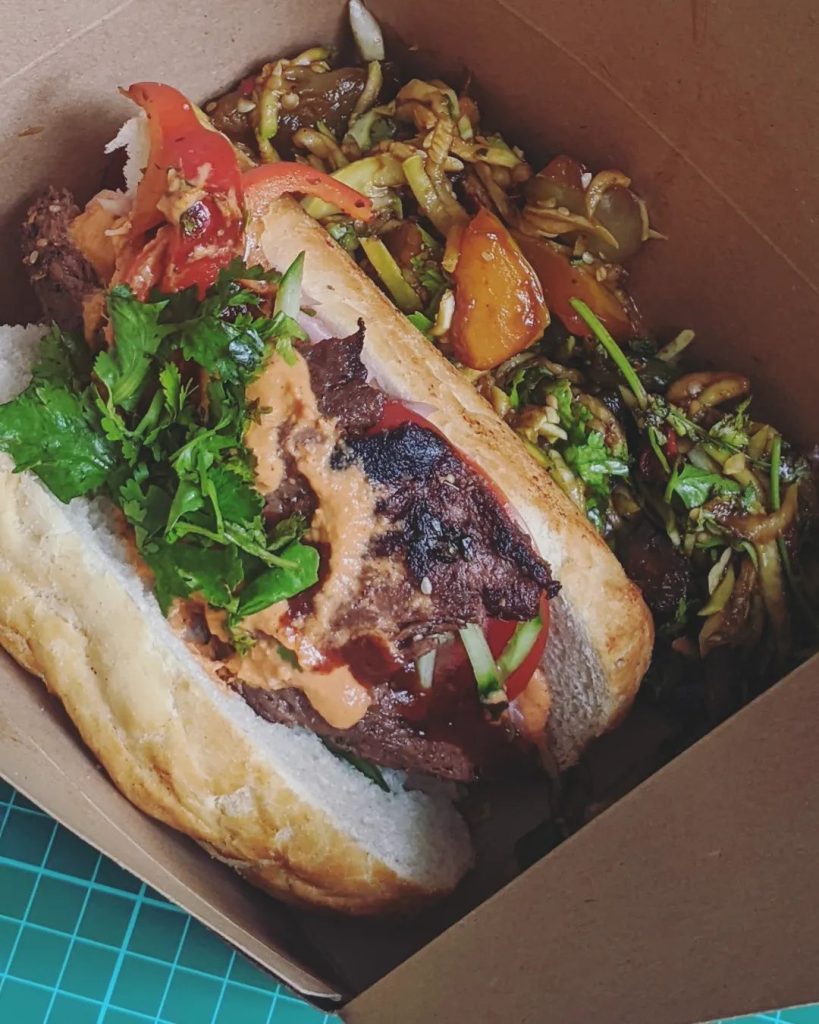
WHAT IS A FOODSHARE?
A Foodshare is an event or organisation where food is shared for free. Foodshares are necessary in today’s society because the system we live under does not guarantee basic wellbeing for everyone, so we must support one other.
Food can be sourced in various ways:
- Commercial surplus, grocers or restaurants etc
- food “rescued” after being wasted (through “skip-diving”)
- raising funds to buy foods
- requesting donations from the community
INTRO
This how-to is based on the Blackbird Community Project’s weekly foodshare (Winter 2022).
We cook in the Blackcurrent Centre Housing Co-operative (24 St Michael’s Avenue, NN14JQ) where people come for free food every Sunday 3pm-7pm.
The first year of the BCP foodshare has seen it develop into a collaboration between friends and neighbours, where regular and occasional visitors come to eat and socialise for free.
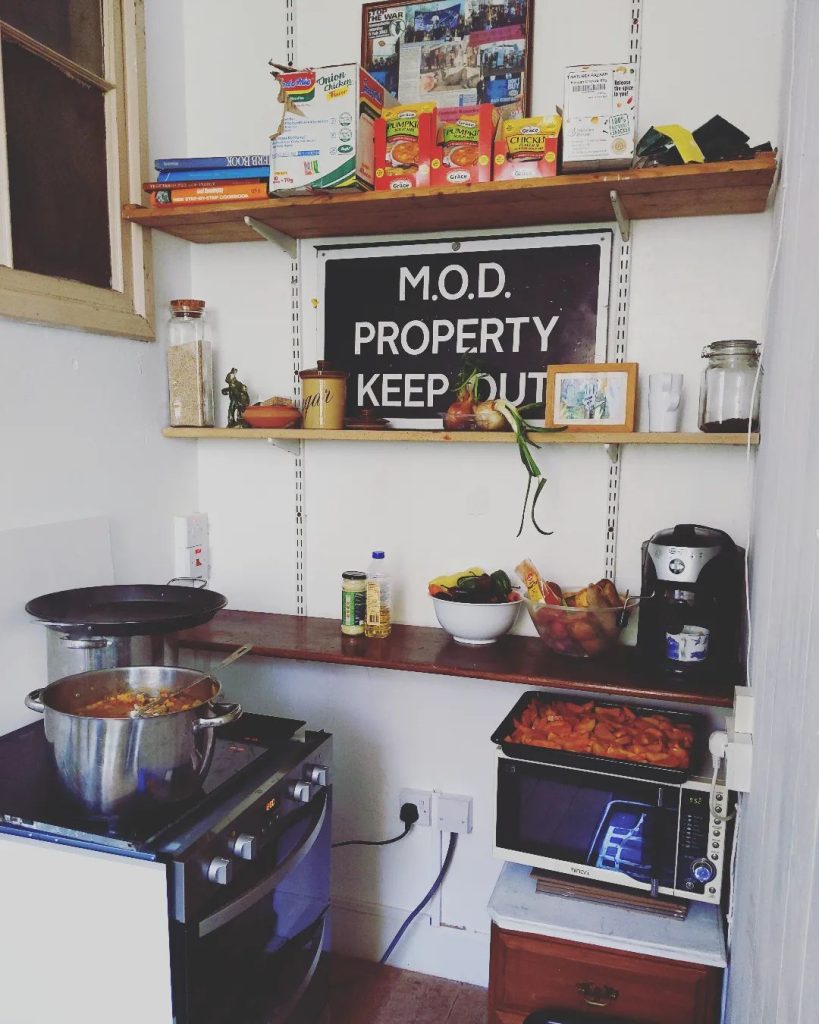
STEPS TO CREATE A FOODSHARE:
1 – Who & What?
Being able to cook, even just basic foods, is a big advantage.
If you don’t have a kitchen you can use a gas burner hooked to a canister. And if no one involved can cook, you could request donations from professional kitchens or share foods that don’t need cooking.
If you need collaborators:
- request support on social media
- advertise on local notice boards,
- visit projects with a similar ethos to meet and learn from likeminded people
BCP does not use animal products; this is an ethical decision but also a practical one as many foodstuffs made from animals’ bodies or bodily produce have a shorter lifespan than veg & plant-based foods.
It is advised to mainly serve foods which are easy to chew, calorically dense, and nutritious.
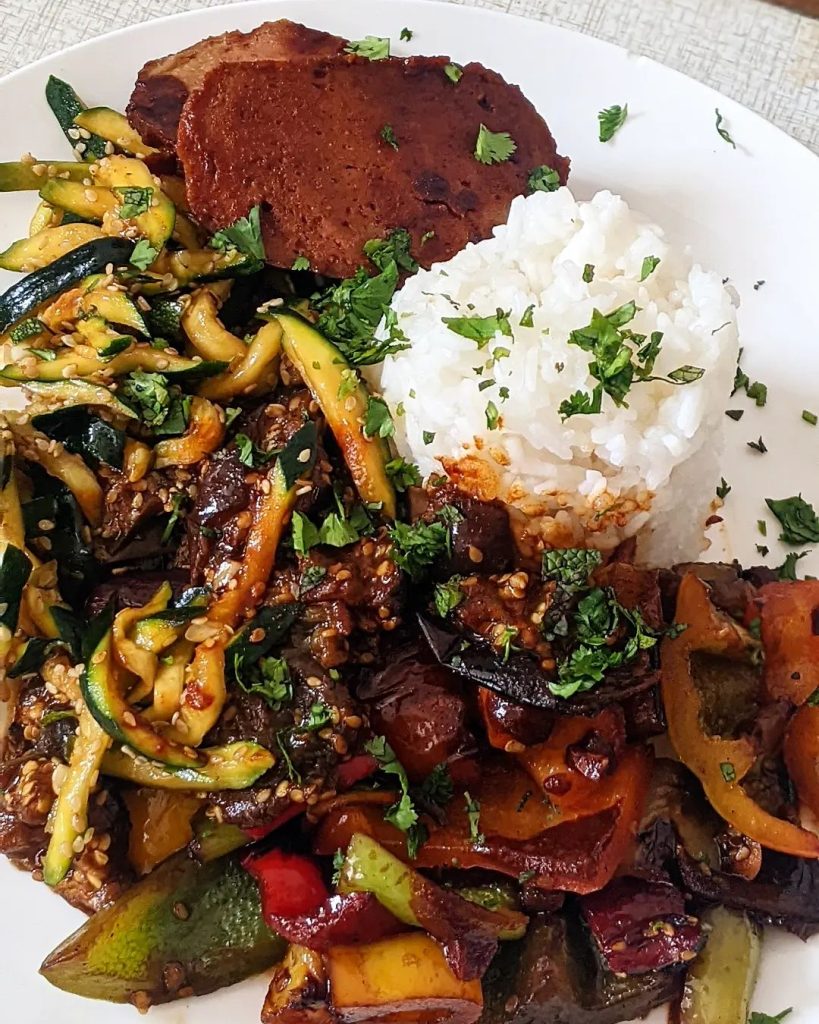
2 – Where?
You could host visitors in a local community centre, and cook from their kitchen if they have one. If not, you could prepare food at home and distribute it on foot, or from a public stall.
Some foodshares bring food in pots and hook up a gas burner with a cannister to keep it heated, and others bring pre-packed portions in take-away containers. They usually offer free cutlery and paper-towels with each meal, and many also give out water and hot drinks. Ideally all materials should be biodegradable/compostable.
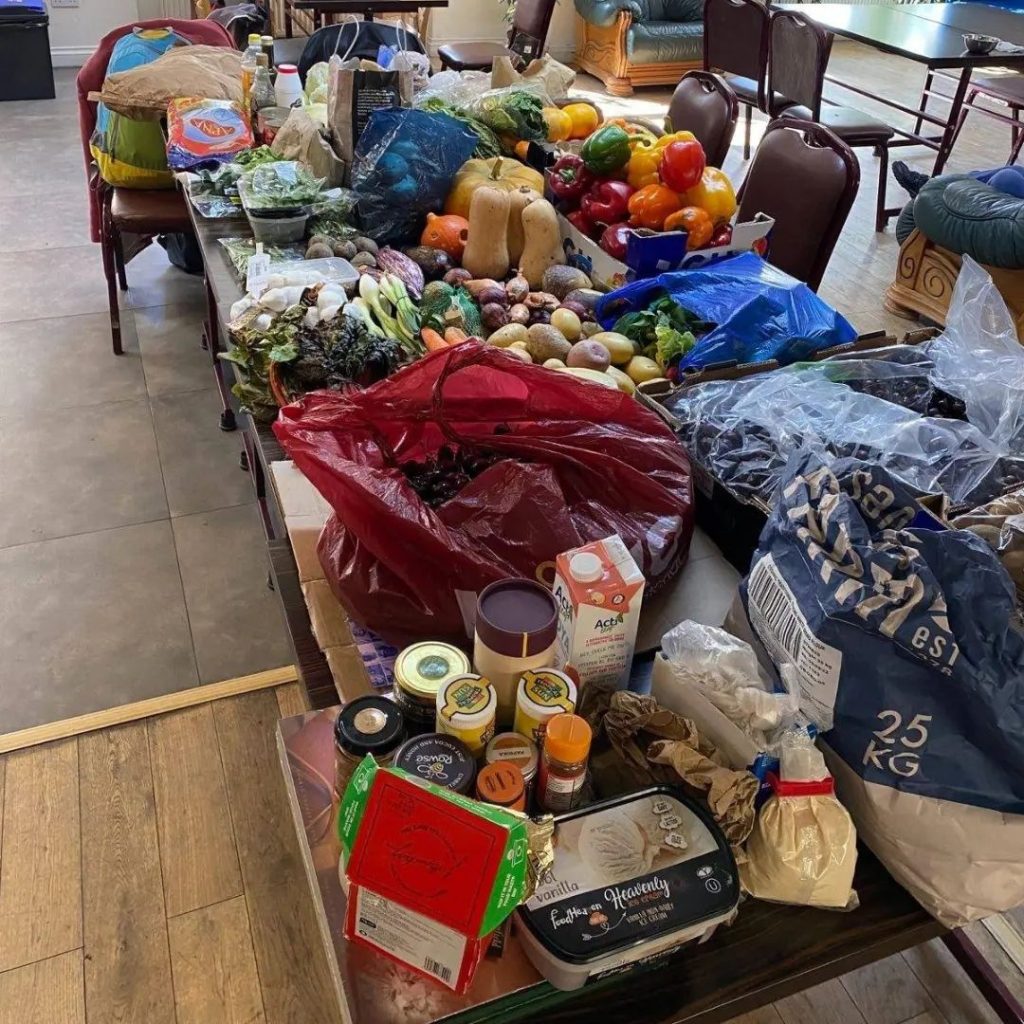
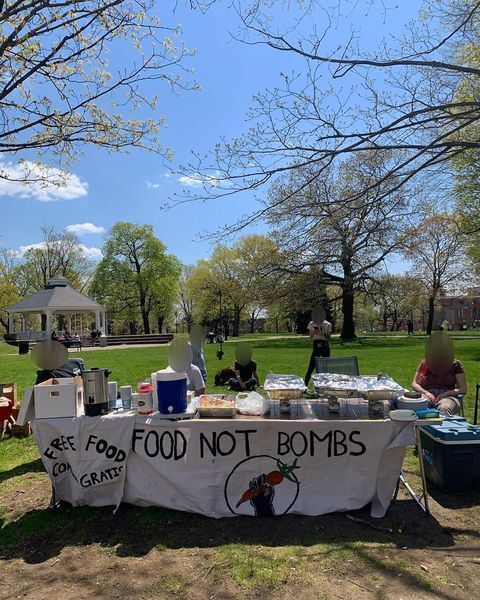
3 – How?
Ask local grocers if you can take foods which are too old to sell; keep it simple!
BCP relies on 6 shops total, 2 supply most food for cooking, and 1 gives most of our shelf-foods.
The more experience you build the easier you will find refusing bad items, and making sure everything gets used or shared.
Not every foodshare is busy, sometimes you won’t find many people; but all experience helps in the longterm. You also have the option to advertise your foodshare; this can be via social media, neighbourhood flyers or posters, banners, chalk-boards at your location, word-of-mouth, local media broadcasting, directly inviting people etc.
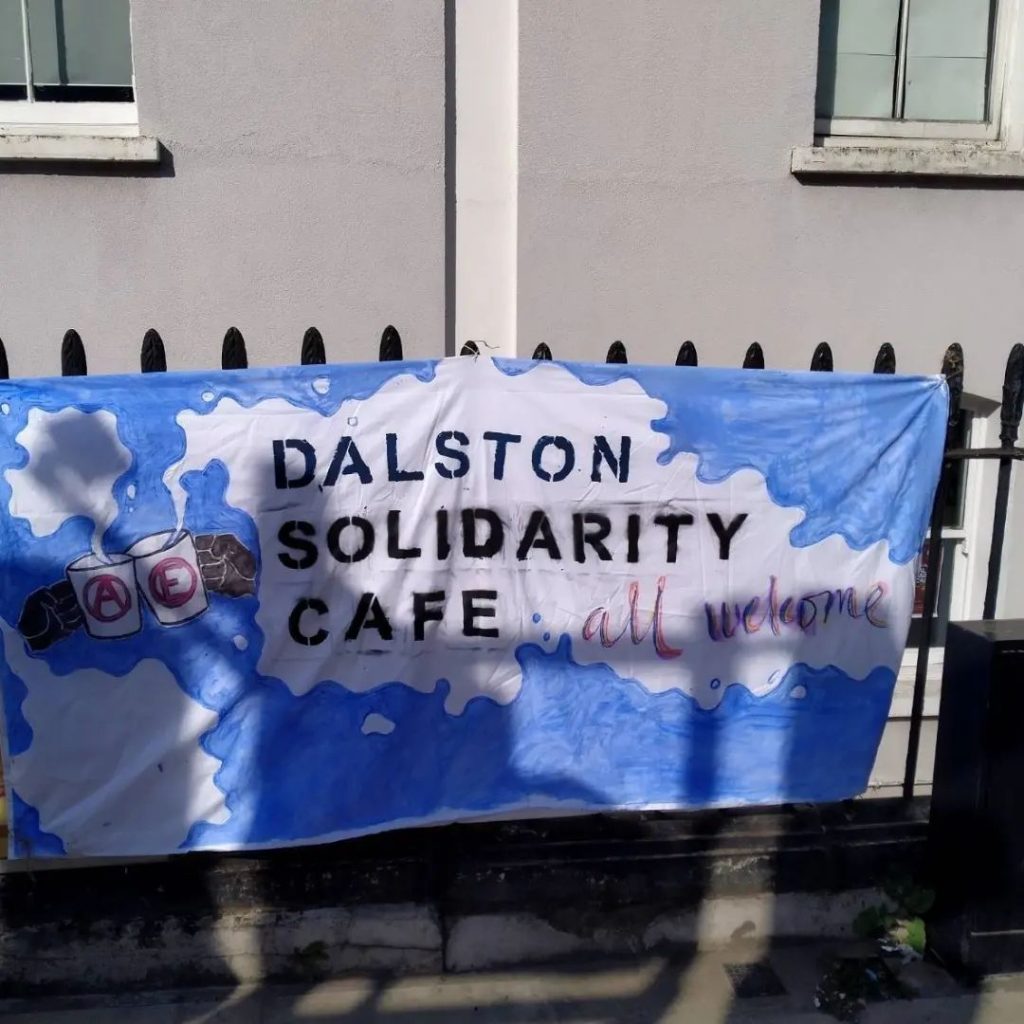
4 – You will need
this depends on the kind of foodshare, but consider these essentials:
- biodegradable cutlery (spoon-like forks!)
- biodegradable take-away containers
- paper towels
- paper water-cups
- water-carrier / dispenser. Thermos-style insulated carriers keep boiled water hot for hours; perfect for quick hot drinks.
- tea-bags & instant coffee
- toiletries
- kitchenware (if indoors: mugs, glasses, plates, cutlery etc.)
- boxes for transporting materials
try to source from donations, but usually you will have to buy most. You can keep a donations jar for visitors to donate if they can afford to, or seek funding from charitable trusts if necessary. BCP uses the Open Collective online fiscal host for transparency with finances.
End
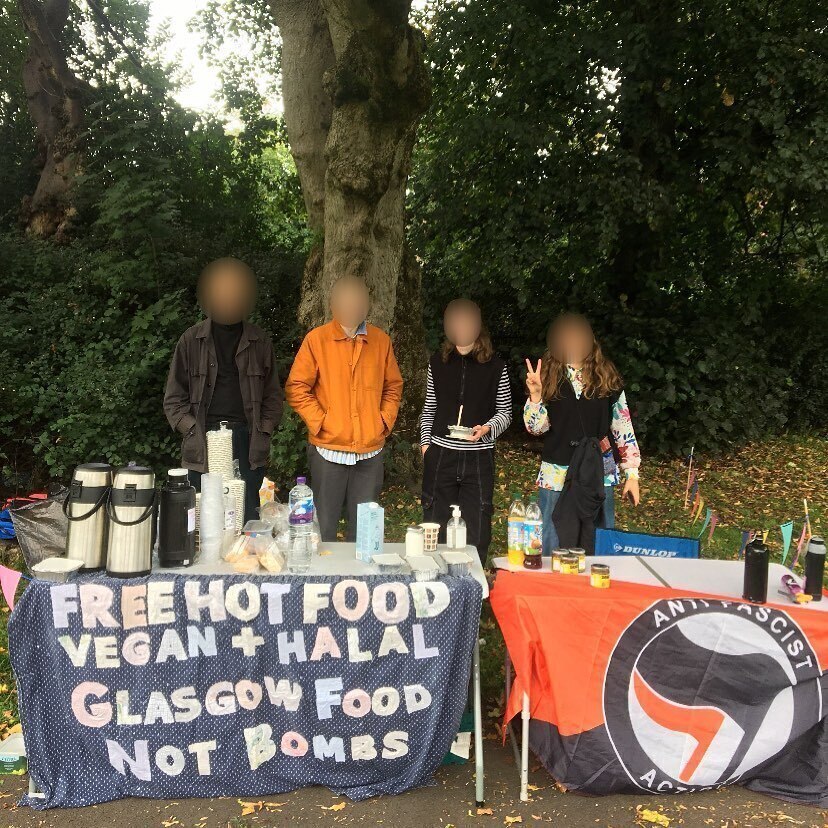
1 – Other versions
-Community shelf / Community Pantry
This is a cabinet in an accessible place, where people bring donations and take what they need. Community shelves are often marked with like “take what you need, leave what you don’t”.
For example, the Semilong Community Shelf (Hester Street, Northampton) is placed in front of a house, with signs explaining the shelf, and that maintenance is everyone’s responsibility.
If possible, it should be accessible 24/7, near lampposts, and it should be easily accessible for people with mobility needs.
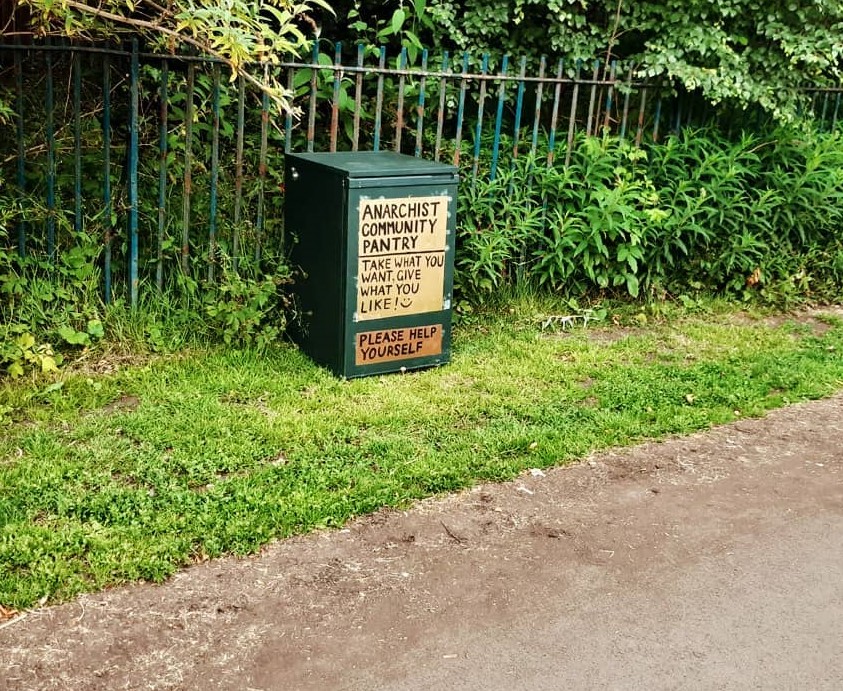
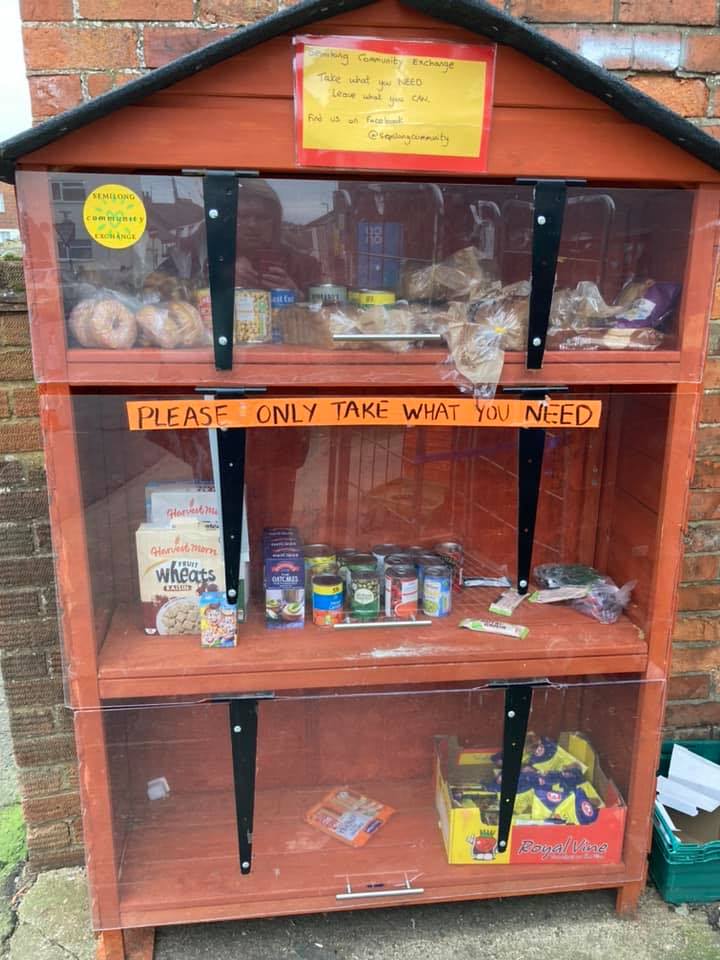
-Public Stall / Food Not Bombs (FNB)
FNB is a global organisation of loosely connected groups that casually share food and socialise in public. Some are in the same location weekly, others are more fluid. All food is vegetarian, it is usually cooked at home and then transported to a stall and offered freely to anybody nearby, and particularly to anyone begging or who may need support. Collaborators are welcome to eat while running the stall.
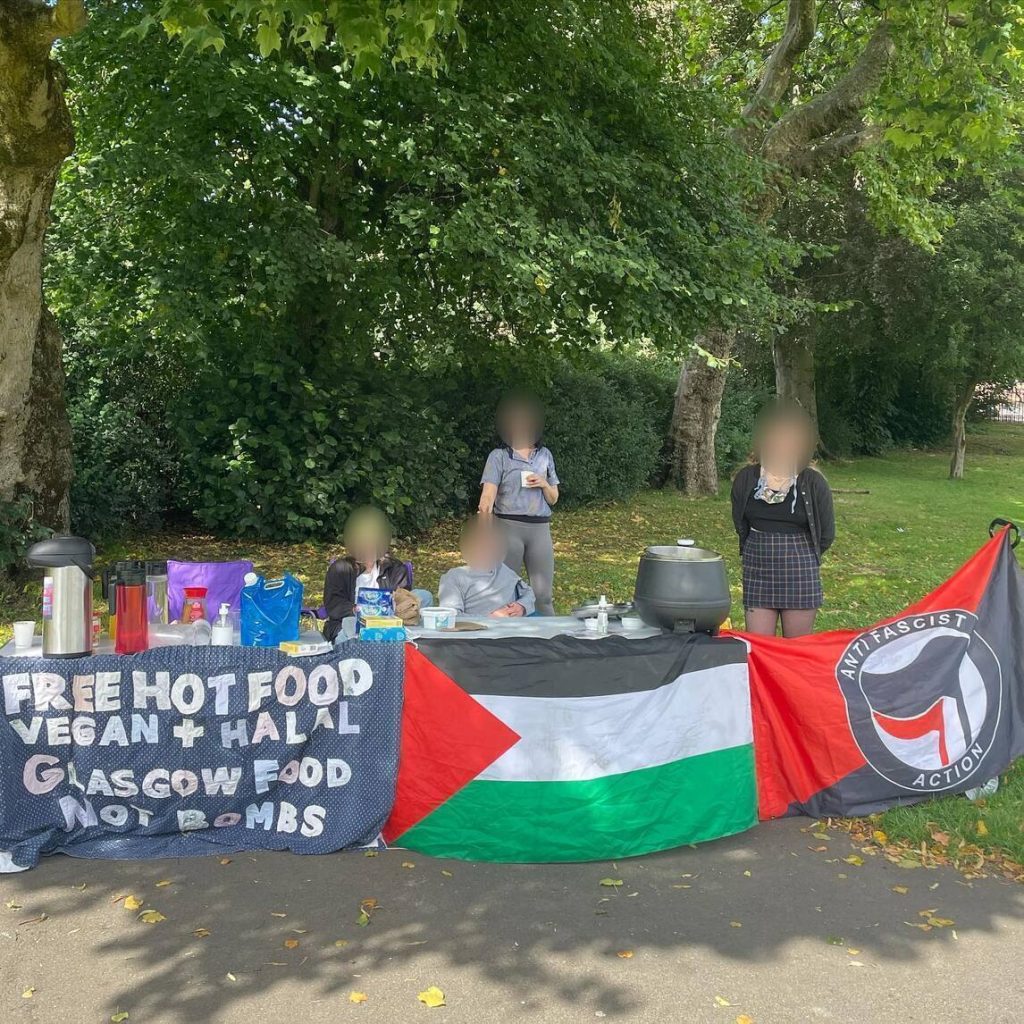
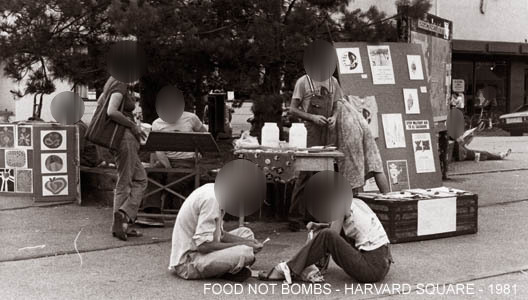
-Event / Dalston Solidarity Café (DSC)
in Hackney, London; a monthly event, began December 2021 in the Halk Evi Kurdish community centre.
All food is from donations, skip-diving, and commercial surpluses. DSC host talks, films, and workshops. They also freely share chest-binders as well as free and cheap literature. It is organised via open meetings where responsibilities are shared. Visitors are encouraged to help during and after each event, and usually everyone does their own washing up. All foods shared are vegetarian, most are vegan.
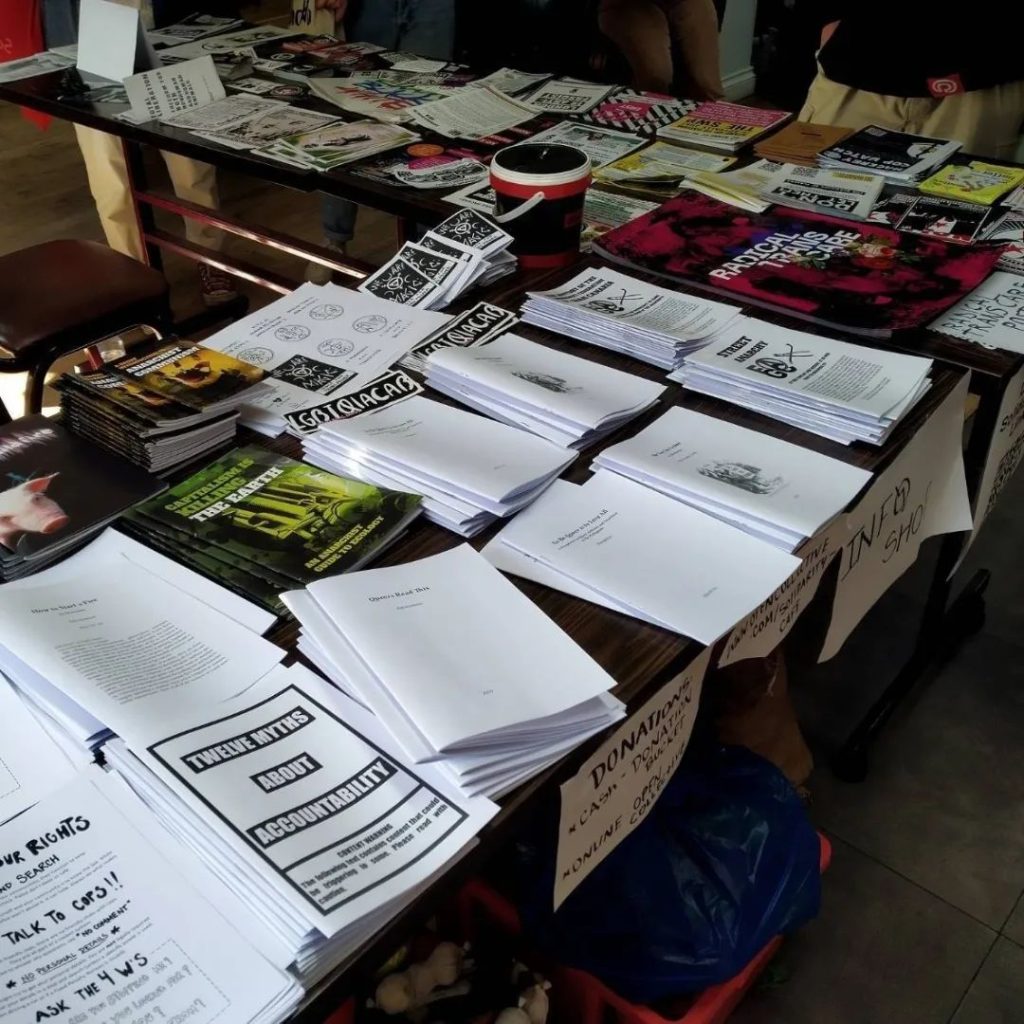
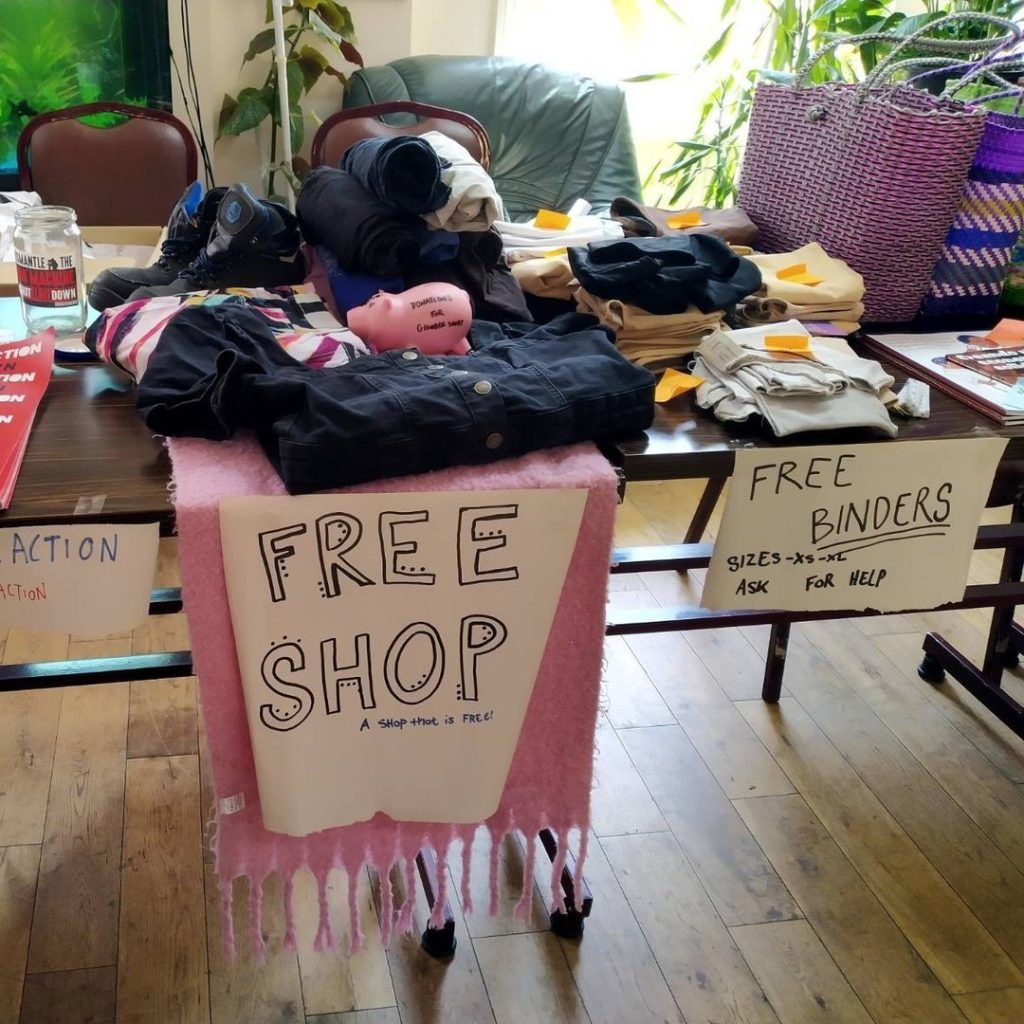
-Rugby FreVKtchn (“Free Vee Kitchen” or Freak Kitchen)
Currently, food is distributed to friends and strangers around the central area of Rugby each weekend. They plan to become a food co-operative which operates on a cheap subscription basis. All members will have an equal say in the project and profits will be reinvested.
-Mobile Foodshare / MK9 Collective Food Run (MK9C)
The MK9 Collective is a mutual aid network in Milton Keynes that runs a 3-nights-weekly food drive where hot meals are donated from local restaurants & caterers; they also distribute free parcels of non-perishable foods and other essential items (like toiletries, clothing, tents, bedding, battery banks, facemasks etc). All food is vegan and free from allergens. Food is delivered to people on the streets, in changing living situations, and at their homes.
2 – How BCP can help you
if you’re in/near Northampton, we can share delivery bags for transporting food, we could help you establish your own foodshare, you could visit at the weekend to help and learn in real time.
We are at @blackbird.community on Instagram or @blackbird.cp on Facebook. Email address is BlackbirdCP@riseup.net
3 – The ethos of a foodshare
In today’s world, food is usually only given if paid for, despite the fact that we all need it to survive.
Most of the money we give to buy food does not go to the people who grew, prepared, transported, or sold the food but to a separate party who did not bring any additional value – the ‘owners’. When this relationship is scaled up to the national and international level, supermarkets make huge profits and build enormous wealth for owners and investors. It is unfair and wrong that anyone should make profit from exploitation, and that this wealth should not be used to help the less supported members of society. There is more than enough to support everybody, yet many people suffer and while the big business owners live in luxury.
A free foodshare is a protest against this unfairness and an attempt to create community-directed support. Almost half of all food produced gets wasted, but it could instead feed everybody. Taking this problem into our own hands strengthens the community and shows that we are not powerless to help eachother.
As conditions worsen, we need to get used to collaborating and solving problems together.
If we work together our potential is limitless.
We recommend avoiding legal responsibilities as far as possible (because this harms our aim of making food & self-organisation accessible) and keeping foodshares and other mutual aid projects fluid. This way the attitude can be lived by all, and doesn’t discourage anyone who might struggle to get legal approval or external funding.
Keeping it freely forming, anybody can help and no one takes on a disproportionate workload. We can only do as much as we are able to, and something is better than nothing – we shouldn’t be at risk of losing our right to share food just because we didn’t meet some arbitrary standard.
Lastly, when initiating a foodshare or similar project, be careful to develop slowly but steadily; this is better than running the risk of taking on too much work for the first collaborators to maintain and potentially burning out.
Take care! We are all we have!
For the PDF or txt version of this document, contact Blackbird Community Project on social media or by email, as given at “2 – How BCP can help you”.

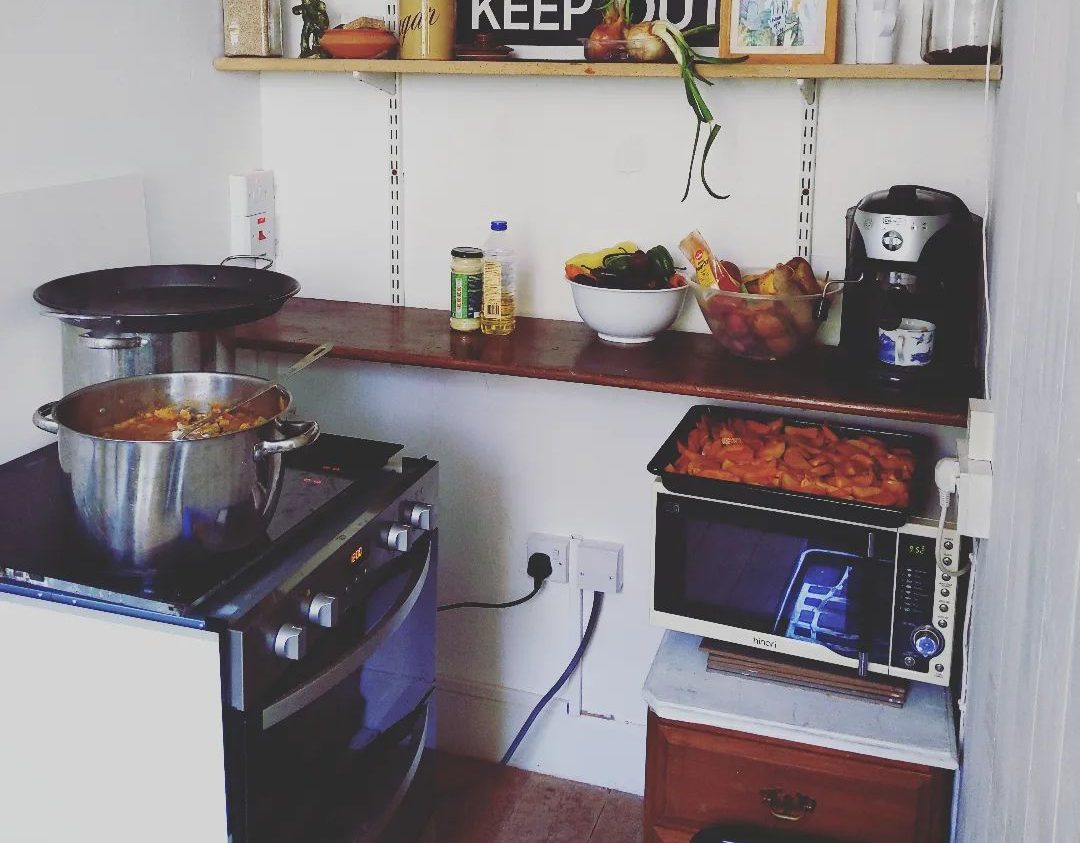
Another local FREE foodshare within walking distance from both Blackcurrent and Semilong community exchange https://www.facebook.com/DostiyoCommunityFridge